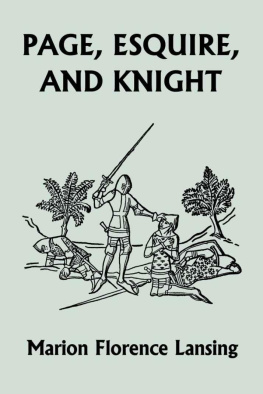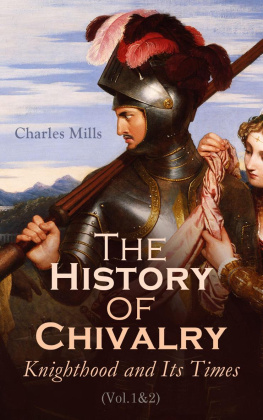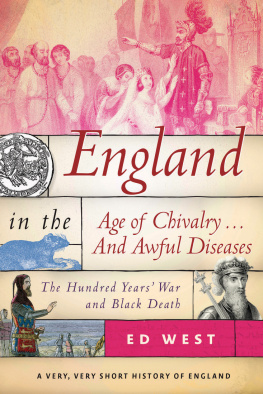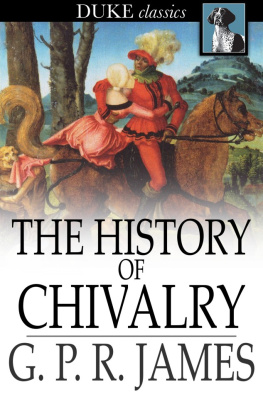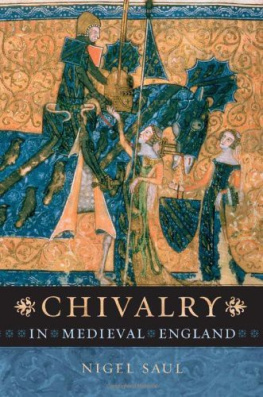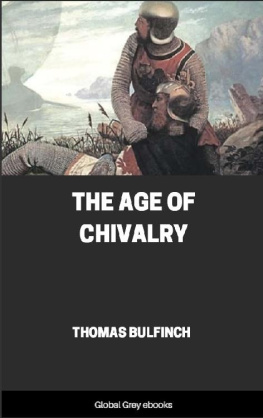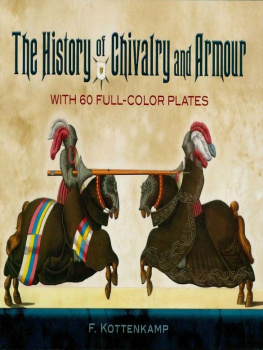Page, Esquire, and Knight
by
Marion Florence Lansing
Yesterday's Classics
Chapel Hill, North Carolina
Cover and Arrangement 2010 Yesterday's Classics, LLC
All rights reserved. No part of this book may be reproduced or retransmitted in any form or by any means without the written permission of the publisher.
This edition, first published in 2010 by Yesterday's Classics, an imprint of Yesterday's Classics, LLC, is an unabridged republication of the work originally published by Ginn & Co. in 1910. This title is available in a print edition (ISBN 978-1-59915-164-9).
Yesterday's Classics, LLC
PO Box 3418
Chapel Hill, NC 27515
Yesterday's Classics
Yesterday's Classics republishes classic books for children from the golden age of children's literature, the era from 1880 to 1920. Many of our titles are offered in high-quality paperback editions, with text cast in modern easy-to-read type for today's readers. The illustrations from the original volumes are included except in those few cases where the quality of the original images is too low to make their reproduction feasible. Unless specified otherwise, color illustrations in the original volumes are rendered in black and white in our print editions.
Preface
William Caxton, the first English printer, who published his books with a view to edification as well as to recreation, thought it well to include in his library three books of chivalry, "wherein his readers should find many joyous and pleasant histories," and should learn of "the noble acts of chivalry, the gentle and the virtuous deeds that some knights did." He had no question that "for to pass the time" his books would be found "pleasant to read in," and he was equally confident that the noble lords and ladies who read these histories would make good use of the same and would "take the good and honest acts in remembrance and do after them." We of a later day find the stories of chivalry likewise pleasant, refreshing, and entertaining, and we echo his thought as to their moral value. How better can gentleness and courtesy, bravery and hardiness, humanity and friendliness, be instilled than by a perusal of stories of chivalry such as have been gathered in this volume of our library of literature?
Page, Esquire, and Knight presents the best stories of all periods of chivalry, from the days of the founding of the Round Table to the death of Chevalier Bayard. It sets forth in simple story form the development and progress of knighthood from the time of St. George, who won his spurs by killing the dragon, to the founding, a thousand years later, of the order which bore his name and embodied in its ritual the highest ceremonial of chivalry. With its explanation of the meaning of the degrees of knighthood, its description of quests and tourneys, and its outline of the great events of chivalry, this volume will serve as a good introduction to the later reading of the child in Arthurian and other romance, and in the history of Charlemagne's wars and the crusades.
Our best heritage from the Middle Ages is the ideal side of that system which
"By a line
Of institution from our ancestors,
Hath been deriv'd down to us, and receiv'd
In a succession, for the noblest way
Of breeding up our youth in letters, arms,
Fair mien, discourses, civil exercises,
And all the blazon of a gentleman."
Chivalry ceased to be of practical value only when the conditions of civilization called for men of peace rather than of war, and the perfect knight was replaced by the perfect gentleman.
M.F.L.
CAMBRIDGE, MASSACHUSETTS
Contents
I N the olden days when it was needful that all men should learn the arts of battle and defense, because law and order had not yet come to prevail throughout the world, knighthood began, and this is how it came to be.
There had been armed men before, and castles where they dwelt, and kings to whom they rendered some sort of allegiance. And there had been brave men who did valiant deeds, but there had been other warriors as well who used their skill at arms and their power over their households and estates to do violent and cruel acts, and this was an evil thing for all the land. So it came about, as you shall read in the tales in this book, that the good men of arms banded themselves together and made an order of chivalry which stretched in time over the length and breadth of all the civilized world. King Arthur was the first to gather the knights together, and many others followed in his way.
The fame and honor of this order of chivalry grew as the knights who made it did noble deeds and set themselves high ideals, until at last every boy of noble family was trained to be a knight; and what that means you will know better when you have read about some of the greatest knights that ever lived, and what brave deeds they did, and to what pledges they bound themselves. Gradually there came to be customs of knighthood which were the same in all lands, so that in the later days of chivalry every knight, whether he lived in a castle in the north of England or was a member of the household of the king of France, was trained in his youth in the same way. He was taken first when he was seven years old and made a page, so that while he was yet a child he should learn courtesy and obedience and the customs of knightly living. So it was that Roland lived in the court of Charlemagne and Bayard in the household of the Duke of Savoy. When he was fourteen the lad exchanged his page's dagger for the sword, and became an esquire, who should be taught skill at arms and good horsemanship and should gain strength of body and nobility of heart. In warlike days the esquire might often see much service, for he always attended his lord and master in arms, whether in travel or tourney or on the field of battle. That shall you see when you read of Roland and Ogier the Dane.
When the esquire was twenty-one, if he lived in days of peace and was deemed worthy, or at any time in his manhood if in days of strife he had performed some valiant feat in battle, he was made a knight; and this was the most solemn act of all, for by this deed he pledged himself to devote all his life to chivalry.
The tales which you will read in this book are but a small part of the stories of noble knights and the deeds they did, since for more than ten hundred years every noble king and every valiant hero was a knight.
Of King Arthur and his Round Table there are many, many stories, for this was
"The goodliest fellowship of famous knights
Whereof this world holds record."
These you will read in the books wherein they are written. In the pages of history and romance you will learn of Guy of Warwick and of Richard the Lion-Hearted, of Louis of France and other famous knights. But here in this little book as well you shall read of knightly quests and strange adventures, and of many men who won fame and honor in those olden days
"When every morning brought a noble chance
And every chance brought out a noble knight."
And I beseech you all, so many as shall see and read in this book, to keep these gracious and courteous and honorable acts of these knights in remembrance, and to follow after the same, for by oft reading of them you shall accustom yourselves to do knightly deeds, and so shall you win a good name and fame.
The Drawing of the Sword
How Britain was without a king

